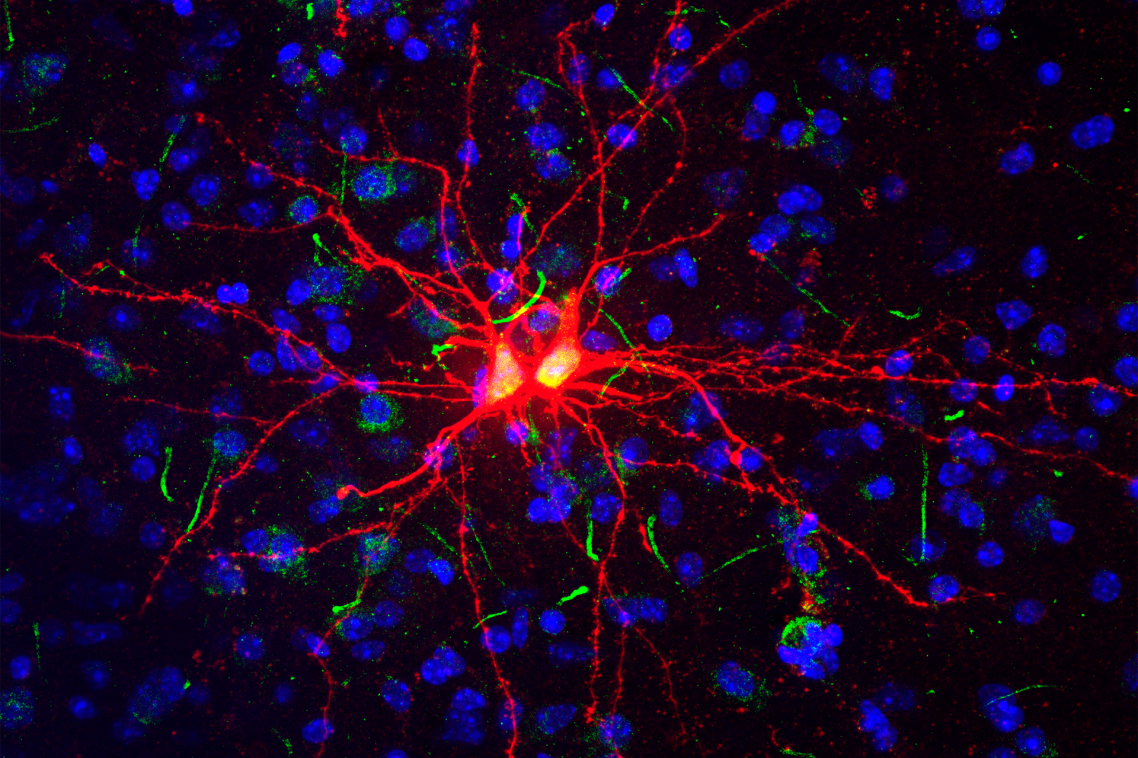Adult brains produce new cells in previously undiscovered area

A University of Queensland discovery may lead to new treatments for anxiety, depression and post-traumatic stress disorder (PTSD).
UQ Queensland Brain Institute scientists have discovered that new brain cells are produced in the adult amygdala, a region of the brain important for processing emotional memories.
Disrupted connections in the amygdala, an ancient part of the brain, are linked to anxiety disorders such as PTSD.
Queensland Brain Institute director Professor Pankaj Sah said the research marked a major shift in understanding the brain’s ability to adapt and regenerate.
“While it was previously known that new neurons are produced in the adult brain, excitingly this is the first time that new cells have been discovered in the amygdala,” Professor Sah said.
“Our discovery has enormous implications for understanding the amygdala’s role in regulating fear and fearful memories.”
Researcher Dr Dhanisha Jhaveri said the amygdala played a key role in fear learning – the process by which we associate a stimulus with a frightening event.
“Fear learning leads to the classic flight or fight response – increased heart rate, dry mouth, sweaty palms – but the amygdala also plays a role in producing feelings of dread and despair, in the case of phobias or PTSD, for example,” Dr Jhaveri said.
“Finding ways of stimulating the production of new brain cells in the amygdala could give us new avenues for treating disorders of fear processing, which include anxiety, PTSD and depression.”
Previously new brain cells in adults were only known to be produced in the hippocampus, a brain region important for spatial learning and memory.
The discovery of that process, called neurogenesis, was made by Queensland Brain Institute founding director Professor Perry Bartlett, who was also involved in the latest research.
“Professor Bartlett’s discovery overturned the belief at the time that the adult brain was fixed and unable to change,” Professor Sah said.
“We have now found stem cells in the amygdala in adult mice, which suggests that neurogenesis occurs in both the hippocampus and the amygdala.
“The discovery deepens our understanding of brain plasticity and provides the framework for understanding the functional contribution of new neurons in the amygdala,” Professor Sah said.
The research, led by Professor Sah, Professor Bartlett and Dr Jhaveri, is published in Molecular Psychiatry.
Media: Andrea Markey, communications@qbi.uq.edu.au, +61 405 661 856; Dr Dhanisha Jhaveri, dhanisha@uq.edu.au, +61 403 996 747.
Related articles

Guns, drugs and smuggling – how UQ experts joined a global quest to fight organised crime

‘High-impact sabotage’: spy chief issues grave warning about espionage and sabotage threat
Media contact
UQ Communications
communications@uq.edu.au
+61 429 056 139
